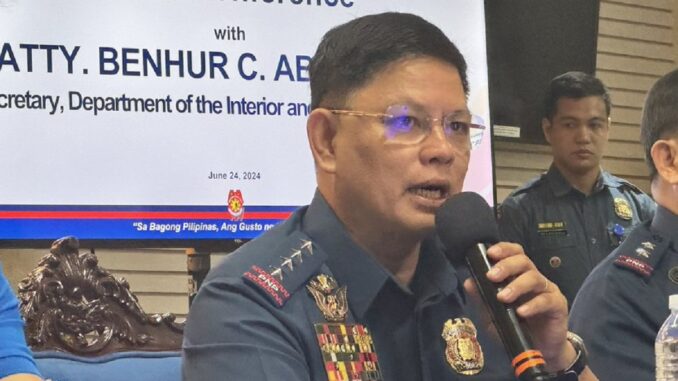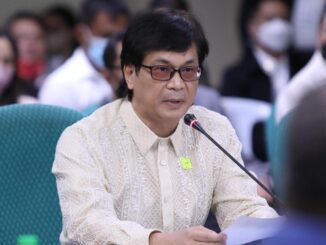
The Philippine National Police (PNP) will conduct an in-depth review regarding the recent claims on the purported existence of a “quota” and “reward” system during the PNP’s anti-drug campaign of the administration of former president Rodrigo Duterte.
In a statement, PNP chief Police General Rommel Francisco Marbil emphasized the seriousness and gravity of the allegations made by P/Lieutenant Colonel Jovie Espenido.
“We take these allegations with the utmost gravity. The review panel, which is led by the Office of the Deputy Chief PNP for Operations (ODCO) and composed of the PNP Quad Staff, the Internal Affairs Service (IAS) and the Human Rights Office, has been tasked to thoroughly assess and evaluate Oplan Double Barrel, including Lt. Col. Espenido’s disclosures,” Marbil said.
The Chief PNP assured the public that a thorough investigation would be conducted as part of an ongoing “comprehensive assessment and evaluation” by the PNP’s oversight bodies.
He noted that the review panel’s mandate includes a detailed scrutiny and examination of all facets of the anti-drug campaign, particularly those related to human rights, operational protocols, and accountability mechanisms that were previously in place.
Marbil also stressed the importance of this review in ensuring that past operations adhered to legal standards and ethical guidelines.
“Our objective is to address any concerns, ensuring that the PNP’s anti-drug operations are conducted in a manner that upholds the rule of law and respects human dignity,” he said.
“We are committed to a drug-free Philippines, but it must be achieved through methods that are just and humane,” Marbil added.
Last week, Espenido revealed that police were required to visit 50 to 100 households of suspected drug users and traffickers daily and were rewarded P100,000 for successful drug busts during the administration of then president Rodrigo Duterte.
“I confirm that there was a quota and reward system in the implementation of the war on drugs during the previous administration. I truly wanted to implement it without causing deaths. When the leadership imposed a quota of 50 to 100 per day, we only took it to mean that we had to knock on the doors of 50 to 100 households suspected of drug use or trafficking,” Espenido testified during the House investigation into the drug war deaths during the administration of former president Duterte.
He said there were also rewards per kill made by cops in the drug war, with the budget for the rewards sourced from state-run Small-Town Lottery (STL) operations.
Espenido has faced homicide charges in the past over the alleged deliberate killing of drug suspects during police operations.
Two of the most high-profile cases where Espenido emerged as the central figure were the “Ozamiz 9” killings in June 2017 and the police raid that led to the deaths of Ozamiz City Mayor Reynaldo Parojinog, his wife, brother, and 12 others in July 2017.
Prior to these events, Espenido was police chief of the town of Albuera,Leyte when its mayor, Rolando Espinosa, was fatally shot inside a prison cell in Baybay City in 2016.
Espenido is a recipient of then Duterte’s Order of Lapu-Lapu award for his “extraordinary contributions to law enforcement.”—Sherylin Untalan/RF, GMA Integrated News





Be the first to comment